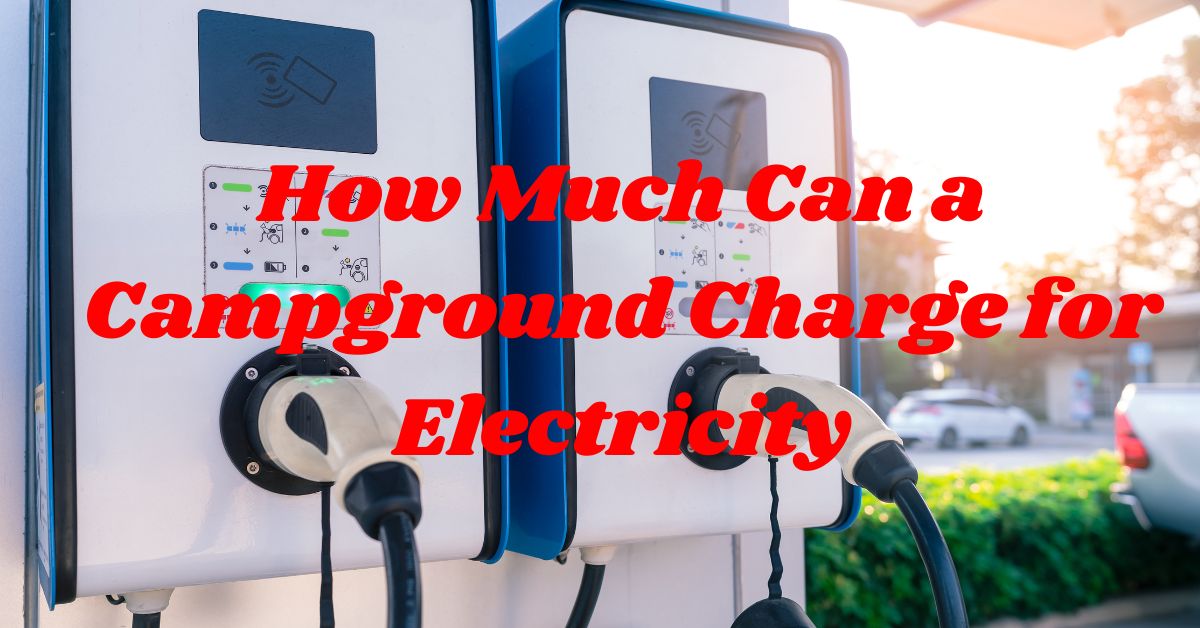How Much Can a Campground Charge for Electricity? In the area of tenting, energy may be a crucial amenity for plenty of campers looking for a mix of nature and comfort.
However, the question of how much a campground can price for strength often arises. Understanding the factors influencing those costs can help campground owners and campers navigate this component of outdoor activity smoothly.
Key takeaways
- Variability: Campground strength quotes can vary widely based totally on geographic vicinity, with prices typically higher in popular traveler areas or regions with better utility charges.
- Metered vs. Flat Rate: Campgrounds may additionally provide energy on a metered foundation, where campers pay primarily based on real usage (according to kWh), or a flat fee in line with nighttime regardless of usage.
- Amenities and Services: Campgrounds that offer greater services which include full hookups (water, sewer, and energy) or top-class sites may price higher electricity prices.
- Seasonal Pricing: Rates may additionally fluctuate seasonally, with better costs at some point of peak seasons while demand is higher and lower prices all through off-peak durations.
- Local Regulations: Some jurisdictions may additionally have policies or pointers that impact how a lot a campground can price for utilities, which include strength. Campground operators must be privy to and observe these policies.
Factors Influencing Campground Electricity Charges
Campground proprietors recall numerous factors when figuring out electricity prices:
1. Location
Location and Its Impact
The topographical region of a campground plays a broad role in deciding quality costs. Campgrounds found in celebrated traveler areas or districts with over-the-top requests might also charge additional power to cover operational costs and capitalize on the convergence of guests.
2. Amenities and Services
Amenities Offered by way of Campgrounds
Campgrounds offering an extensive range of facilities, including swimming pools, laundry centers, and Wi-Fi, might also incorporate the price of electricity into the general tenting price. The extra services a campground affords, the better the energy charges may be to hold these centers.
3. Seasonal Variations
Seasonal Considerations
Electricity fees at campgrounds often range based totally on the season. During peak seasons, together with summer season vacations, electricity quotes may additionally grow because of higher demand and operational charges. Conversely, off-peak seasons may additionally see lower strength fees to attract campers during quieter times.
4. Infrastructure and Maintenance Costs
Infrastructure and Maintenance
The quality of electrical infrastructure and ongoing preservation prices can impact strength expenses. Campgrounds with modern-day electric systems and everyday upkeep schedules may charge higher quotes to cover these expenses and ensure dependable delivery of energy to campers.
Regulatory Compliance and Market Competition
Regulatory Compliance and Market Competition
Campground owners must adhere to regulatory requirements concerning energy pricing and billing practices. Additionally, market opposition in the tenting enterprise can influence power charges, as campgrounds may adjust their prices to remain aggressive while also complying with regulatory requirements.
How much do campgrounds charge for electricity?
The toll taken at campgrounds can change broadly depending on a few variables, including the area, conveniences given, and the particular campground’s estimating structure. Regularly, campgrounds that offer electrical hookups for RVs or tent destinations will charge a daily charge that incorporates the fetching of electricity.
In the United States, for example, a few campgrounds may charge an extra $5 to $20 per night for electrical hookups, whereas others may incorporate it into the base camping expense.
The fee can also shift depending on the amount of power utilized, with a few campgrounds charging based on a level rate and others utilizing a metered framework where campers pay for the real power consumed.
It’s best to check with the particular campground you arrange to visit to get precise estimating data for power utilization. Numerous campgrounds give this data on their websites or can give subtle elements over the phone or through e-mail.
Table for How Much Can a Campground Charge for Electricity?
FAQs about How Much Can a Campground Charge for Electricity?
1. How are strength charges calculated at campgrounds?
Electricity fees at campgrounds are generally calculated primarily based on factors such as the amount of strength consumed (measured in kilowatt-hours), campground services, seasonal versions, and operational expenses.
2. Can campers use their generators in preference to paying for campground energy?
While a few campers may also choose to use their very own turbines, many campgrounds have policies in place regarding generator usage because of noise pollution and environmental issues.
Additionally, using campground electricity can be more convenient and cost-effective for campers.
3. Are there any methods to lessen power charges while camping?
Campers can reduce electricity costs by minimizing electricity consumption, which consists of turning off lights and home equipment when not in use, using energy-green gadgets, and working towards responsible usage.
Conclusion
Understanding how much a campground can cost for control requires the consideration of distinctive variables that incorporate area, conveniences, regular forms, framework, administrative compliance, and showcase competition.
By investigating these components, campground proprietors can set up fair and competitive vitality costs, whereas campers can make learned choices while arranging their open-air experiences.
Whether tenting inside the bustling summer months or playing a quiet getaway all through the off-height season, quality expenses play an essential role inside the tenting delight, forming reassurance and comfort amid the brilliant outside.




